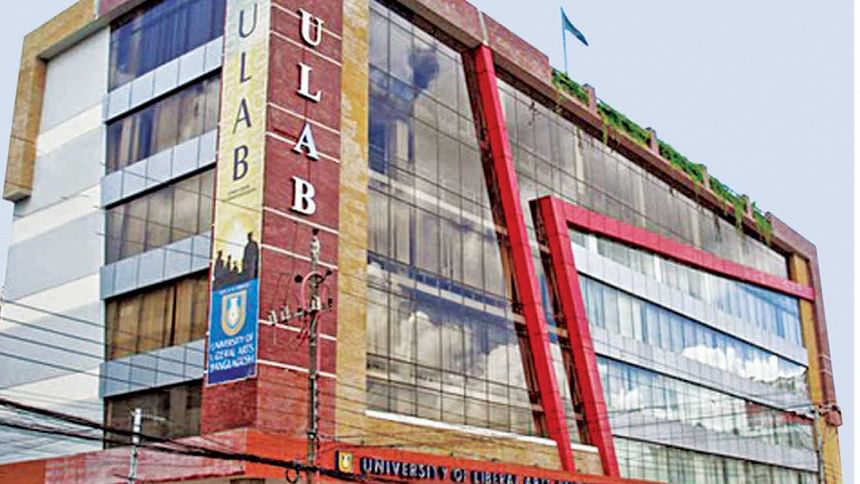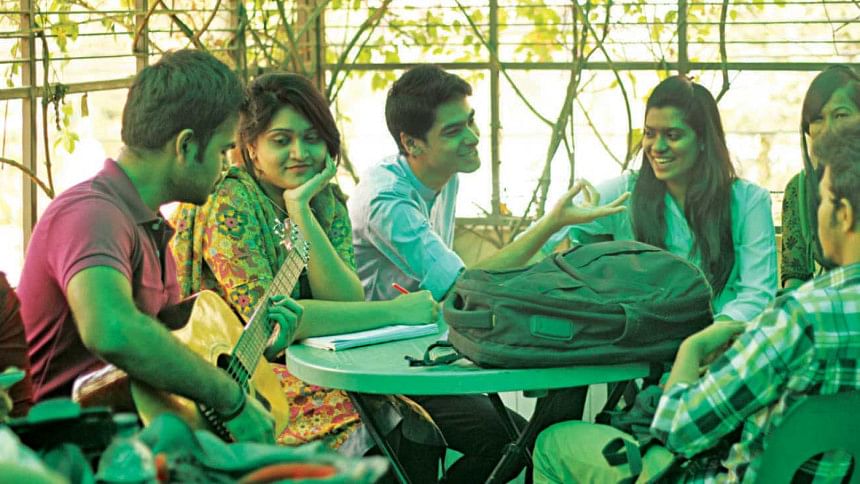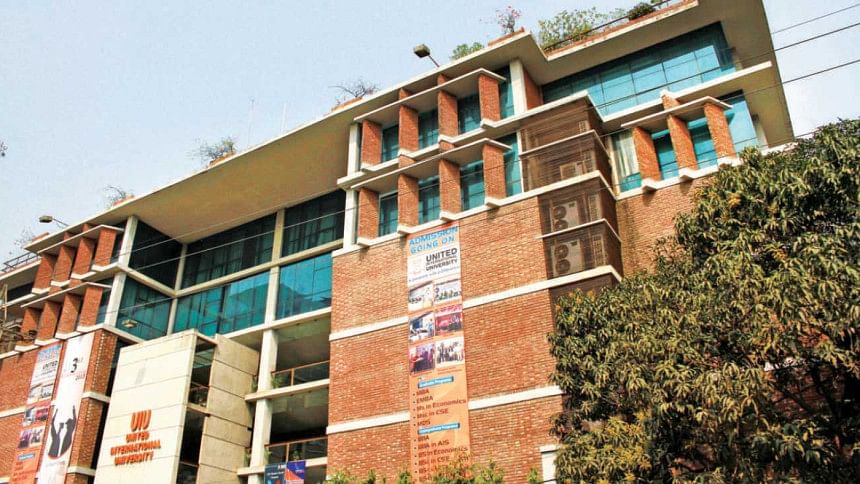Debunking Myths about Private Universities

Public universities in Bangladesh can be traced back to 1921, when University of Dhaka was established. Compared to that, the advent of private university sector is more recent, with the first such establishment, North South University, being founded in 1992. Most of the major public universities were established before 1992. Based on this statistic alone, one can argue that education quality in public universities is superior to that of private universities. While we're not refuting that notion, we are not agreeing with it either.
If we look elsewhere in the world, private universities are dominating the university rankings. MIT, Harvard, Stanford, Yale – all are private universities. Maybe in time, Bangladesh will become more open towards private universities and the universities will improve their standards further.

Unfortunately, a lot of misplaced resentment comes in the way of an average private university student in Bangladesh. The most common insult to them is that they are not smart enough to get into public universities. Is that really true though? Let's look at some numbers. A total of over 3 lakh students applied for the admission exam for University of Dhaka for the term starting in 2015, whereas the total number of seats available was only 6582. So, what would happen to the other 2.94 lakh students? Does it mean that the person who didn't make the cut just by a thin margin was not competent enough? Is that person's dream of studying a particular field just going to die? Sure, there are other public universities, but those will not be able to accommodate all the students either.

"Public universities have a solid rep as their entrance exams are designed to filter out the best students of the entire applicant pool," says Md Mushfiqul Huq, who had attended a public university before having to switch to a private one. "But that doesn't prove that the rejected students are undeserving or incompetent, because one exam does not and cannot assess someone's intellect or aptitude on the whole. The success of a person comes down to individuality, and how ready they are to develop themselves."
That's where private universities come in play by taking in some of those "public university rejects" and giving them the opportunity to pursue higher education in their preferred fields. Does that mean private universities are willing to accept just about anybody and everybody? NO. They maintain their own standards and accept students based on applications and entrance exams, just like their public counterparts. And since there are many different universities with a diverse range of courses offered, a student will eventually find one that will allow him/her to enrol in an undergrad degree based on his/her competencies and preferences. However, it is indeed true that the acceptance rate is relatively higher in private universities.
The quality of education in private universities cannot be written off by its critics though. Firstly, for a university's degree to be legally valid, the university needs to be approved by the University Grants Commission (UGC). If an institution cannot ensure or maintain a minimal standard of education, it will not be approved. This was seen recently when the UGC took away approval of a few such universities due to various reasons. A full list of UGC approved universities can be found at http://www.ugc.gov.bd; be sure to check if the university you wish to enrol in is on the list.

Most of the faculty members at private universities either possess grad or post-grad degrees from renowned universities overseas or are visiting faculty members from public universities, though that may not be the case all the time. For instance, many professors from DU, IBA and BUET regularly conduct classes at the various departments in private universities in Dhaka. In such cases, students of private universities are essentially learning the same material from the same teachers as public university students, or from otherwise qualified teachers who are experts in their fields. Therefore, there's no reason to think private university students receive 2nd rate education.
"Public universities are a sought after dream for us but the quality of education in private universities is in no way sub par. The teachers are doing their job properly by means of constant supervision and feedback. Courses are designed by referring to that of the public universities here, and even foreign universities, in order to match the quality," says Lamisha Noor from BRAC University.
At private universities, there is rarely any disruption in the flow of education due to factors like politically motivated violence on campus. At most public universities, however, the student wings of political parties can get confrontational and violent. As a result, session jams may occur.
Another myth about private universities involves drug abuse or illicit activities caused by a wayward lifestyle. While a few may be guilty of such conduct, forming an opinion based on that about private university students in general would be a mistake. The universities do not encourage or tolerate such activities. In fact, most private universities ban smoking inside the campus and severely fine or punish students who breach the code of conduct. The rules are very strict, and most of the top private universities even restrict unauthorised entry to the campuses, which also contributes to a safe environment.
There certainly are cons when it comes to private universities. Campus life and activities consist of a large portion of the university experience. Most of the time, private university students are deprived of those due to a lack of a big campus or packed class schedules, although that is not always the scenario. Consequently, the private university students may miss out on a lot of fun activities that public university students may get to enjoy.
Moreover, tuition fees are quite high at private universities. Even the lowest of tuition fees are much higher than that of their public counterparts. And yes, this is one of the major problems for many students and their families. But then again, most private universities also offer financial aid to students who are struggling to pay the tuition fees and scholarships to the meritorious ones.

Some complain about teacher-student interaction at private universities, which is unfounded. Since the size of classes is small, students gets more attention from teachers. Faculty members are often found sharing their own experiences and struggles, and providing valuable career advice at the corridors or cafeterias of the universities. Not that this does not happen at the public universities, but at private ones, it is quite easy for a student to be in the good books of a professor.
Undermining private university students has gone on for too long. It's time we change that perception. Students who could neither make it to the very few prestigious public universities nor are well-off enough to study abroad can find a perfect middle ground at private universities. At the end of the day, we should learn to stop generalising. Statements such as "private university students are dumb" or "public university students are busy with politics and violence" should cease to exist.
PHOTOS: SOHAIL ANWAR & DARSHAN CHAKMA

 For all latest news, follow The Daily Star's Google News channel.
For all latest news, follow The Daily Star's Google News channel. 



Comments